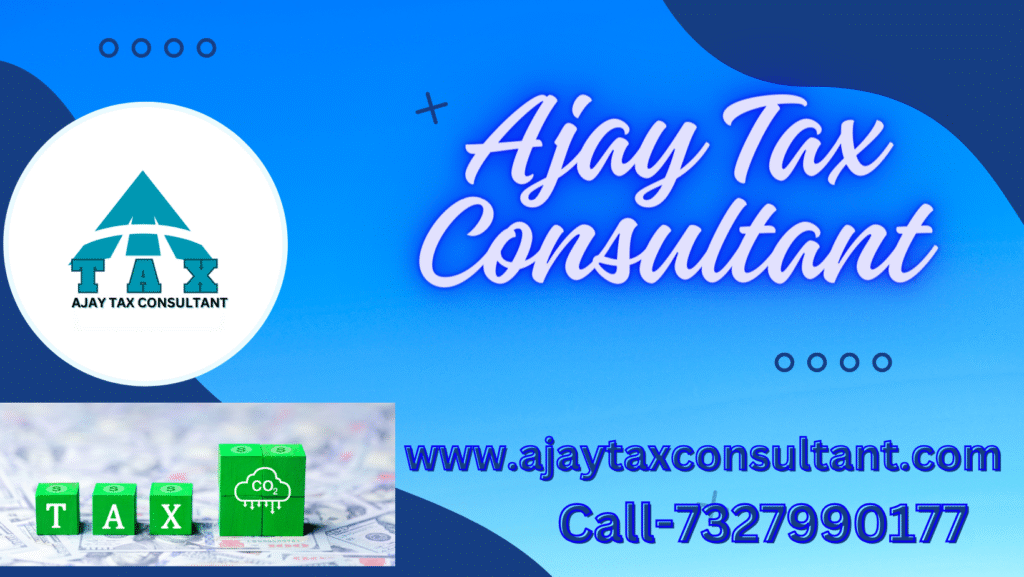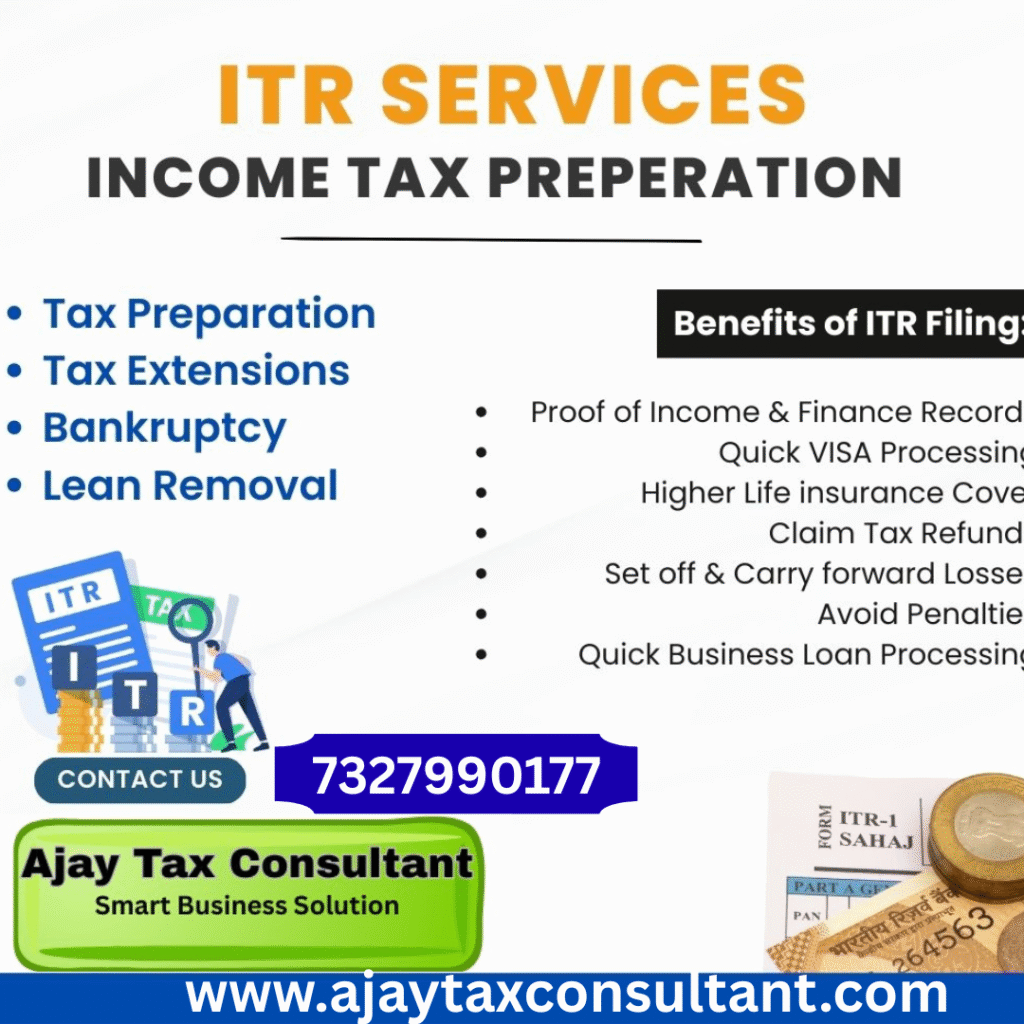How to Register a Sole Proprietorship in India: Complete Guide

Introduction: –
Learn how to register a sole proprietorship in India easily. Step-by-step guide on the process, documents, costs, and benefits for starting your own small business.
A sole proprietorship is the simplest and most common form of business ownership in India.
In this model, a single individual owns, manages, and controls the entire business.
It is especially popular among small businesses, freelancers, consultants, shopkeepers, and local service providers because it is easy to start, cost-effective, and requires minimal legal compliance.
This article provides a detailed overview of sole proprietorship business registration, including what it is, its advantages and disadvantages, the registration process, legal requirements, and essential tips for success.
What is a Sole Proprietorship?
A sole proprietorship is an unincorporated business owned and run by one person. There is no legal distinction between the owner and the business entity. This means:
- The proprietor owns all assets and profits.
- The proprietor is personally liable for all debts and obligations.
Despite this personal liability, many choose sole proprietorship for its simplicity, flexibility, and low costs.
Key Features of a Sole Proprietorship
- Single Owner: One individual controls the business.
- Unlimited Liability: The owner is personally liable for all business debts.
- No Separate Legal Entity: The business and owner are legally the same.
- Simple Taxation: Profits are taxed as personal income.
- Easy to Start and Close: Minimal compliance and regulatory burden.
Advantages of Sole Proprietorship
- Easy to Start: Very few formalities are required. Registration can often be completed quickly.
- Low Cost: No need for large capital or expensive legal fees.
- Complete Control: The owner makes all decisions.
- Minimal Compliance: Fewer regulations compared to other business structures.
- Simple Taxation: Business income is reported as personal income, simplifying tax filings.
Disadvantages of Sole Proprietorship
- Unlimited Personal Liability: The owner’s personal assets can be used to settle business debts.
- Limited Funding: Banks and investors often prefer other structures.
- Limited Lifespan: The business typically ends with the owner’s death or decision to close.
- Less Credibility: Some customers and vendors prefer dealing with registered companies.
- Difficulty in Expansion: Scalability is limited compared to partnerships or companies.
Is Registration Mandatory for a Sole Proprietorship?
In most jurisdictions (including India), there is no mandatory central registration required to start operating as a sole proprietor.
You can simply start doing business in your own name.
However, to operate legally and professionally, you often need to register for certain licenses and documents depending on your business type, size, and location.

Key Registrations and Licenses for Sole Proprietorship
While you don’t register the “sole proprietorship” as a company, you may need these:
1️⃣ Business Name Registration
- If you want to operate under a name different from your own, you may need to register a trade name or firm name with local authorities.
2️⃣ Shop and Establishment Registration
- Mandatory in many states for any commercial establishment (shops, offices).
- Usually issued by the local municipal or state labour department.
3️⃣ GST Registration
- Required if annual turnover exceeds the GST threshold (e.g., ₹40 lakh for goods, ₹20 lakh for services in India, though this can vary).
- Also required if you want to sell online or inter-state.
4️⃣ Professional Tax Registration
- Applicable in some states for businesses with employees.
5️⃣ Udyam Registration (for MSME benefits)
- Voluntary, but highly recommended.
- Provides recognition as a Micro, Small, or Medium Enterprise.
- Enables access to government schemes, loans, subsidies.
6️⃣ Income Tax Registration (PAN)
- The owner’s PAN is used for taxation.
- You may also need a separate TAN for tax deduction at source (TDS) if you hire employees.
7️⃣ Other Licenses
- FSSAI for food businesses.
- Trade license from the local municipality.
- Sector-specific or location-specific permits.

Step-by-Step Process to Register Your Sole Proprietorship
Here’s a typical process in India (similar principles apply in many countries):
Step 1: Decide Your Business Name
- Choose a name that reflects your business.
- Ensure it is unique, memorable, and complies with local rules.
Step 2: Obtain PAN and Bank Account
- Use your personal PAN for tax purposes.
- Open a current account in the business name (banks typically require proof of business registration).
Step 3: Apply for Relevant Licenses
- Shop and Establishment Registration from local authorities.
- GST Registration if required.
- Professional Tax Registration (if applicable).
- Udyam Registration for MSME recognition.
Step 4: Open a Business Bank Account
- Most banks require:
- Business name registration
- GST registration
- Shop and Establishment license
- Utility bill or rental agreement
Step 5: Maintain Records and Comply with Taxes
- Maintain invoices, purchase records, and expense records.
- File income tax returns as an individual (business income included).
- File GST returns if registered.
Taxation of Sole Proprietorship
- Profits are taxed as personal income of the proprietor.
- Tax slabs for individuals apply.
- No separate corporate tax.
- GST is applicable if registered, with monthly/quarterly returns.
- Eligible for various deductions and exemptions available to individuals.
Documents Commonly Required
✅ Aadhaar Card of the proprietor
✅ PAN Card of the proprietor
✅ Proof of business address (utility bill, rent agreement)
✅ Bank account details
✅ Passport-size photographs
✅ Registration certificates (GST, Shop & Establishment, etc.)
Cost of Registering a Sole Proprietorship
- Professional fees (if you hire a consultant) may add ₹6000–₹8000.
- GST and Udyam Registration are typically free (included).
Why Register at All?
Even though a sole proprietorship does not require incorporation like a company or LLP, registration helps:
✅ Build trust with customers and suppliers.
✅ Open a business bank account.
✅ Get GSTIN for interstate sales.
✅ Avail government benefits (MSME schemes).
✅ Avoid legal penalties for unlicensed operations.

FAQs with Answers
1. Is registration of a sole proprietorship mandatory in India?
Answer:
No central registration is mandatory to start a sole proprietorship. However, depending on your business activity and location, you may need licenses like Shop and Establishment registration, GST registration (if turnover exceeds threshold), or sector-specific permits to operate legally.
2. What documents are required for sole proprietorship registration?
Answer:
Common documents include:
✅ Aadhaar card and PAN card of proprietor
✅ Business address proof (utility bill, rent agreement)
✅ Passport-size photos
✅ Relevant licenses (Shop & Establishment, GST, Udyam Registration)
3. How do I open a bank account for my sole proprietorship?
Answer:
To open a current account in your business name, banks usually require proof of business activity such as:
✅ Shop and Establishment certificate
✅ GST registration
✅ Trade license
✅ Utility bill or rental agreement
4. What taxes does a sole proprietor pay?
Answer:
Profits are taxed as personal income under individual income tax slabs. GST registration is mandatory if turnover exceeds the threshold (e.g., ₹40 lakh for goods, ₹20 lakh for services) or for interstate sales.
5. What are the benefits of registering my sole proprietorship?
Answer:
✅ Build trust with customers and vendors
✅ Open a business bank account
✅ Legally operate in your state/city
✅ Avail MSME benefits via Udyam Registration
✅ Access government loans and subsidies
6. Can I convert my sole proprietorship into a company or LLP later?
Answer:
Yes. You can upgrade to a Partnership, LLP, or Private Limited Company as your business grows. This helps you limit liability, raise funds, and improve credibility.
Conclusion
A sole proprietorship is the most straightforward way to start your entrepreneurial journey.
It offers simplicity, control, and minimal costs—ideal for small traders, professionals, and freelancers.
However, it comes with unlimited personal liability and limited growth potential.
By understanding and completing the right registration steps—such as Shop & Establishment, GST, Udyam—you can operate legally, build trust, and even unlock benefits for your business.
Whether you’re opening a shop, freelancing, or launching a small service business, sole proprietorship registration is an accessible gateway to formal entrepreneurship.
✅ English: Apply Today to Unlock Premium Services.
✅ Odia: ପ୍ରିମିୟମ୍ ସେବା ପାଇଁ ଆଜି ଆବେଦନ କରନ୍ତୁ।
✅ English: Schedule Your Consultation Now for Expert Guidance.
✅ Odia: ବିଶେଷଜ୍ଞ ପରାମର୍ଶ ପାଇଁ ଏବେ ଆପଣଙ୍କର ପରାମର୍ଶ ନିର୍ଦ୍ଧାରଣ କରନ୍ତୁ।
✅ English: Register to Access Exclusive Business Solutions.
✅ Odia: ବିଶେଷ ବ୍ୟବସାୟ ସମାଧାନ ପାଇଁ ନମ୍ବା କରନ୍ତୁ।
Call Me for Help: 7327990177
Visit My website Today:https://ajaytaxconsultant.com/



